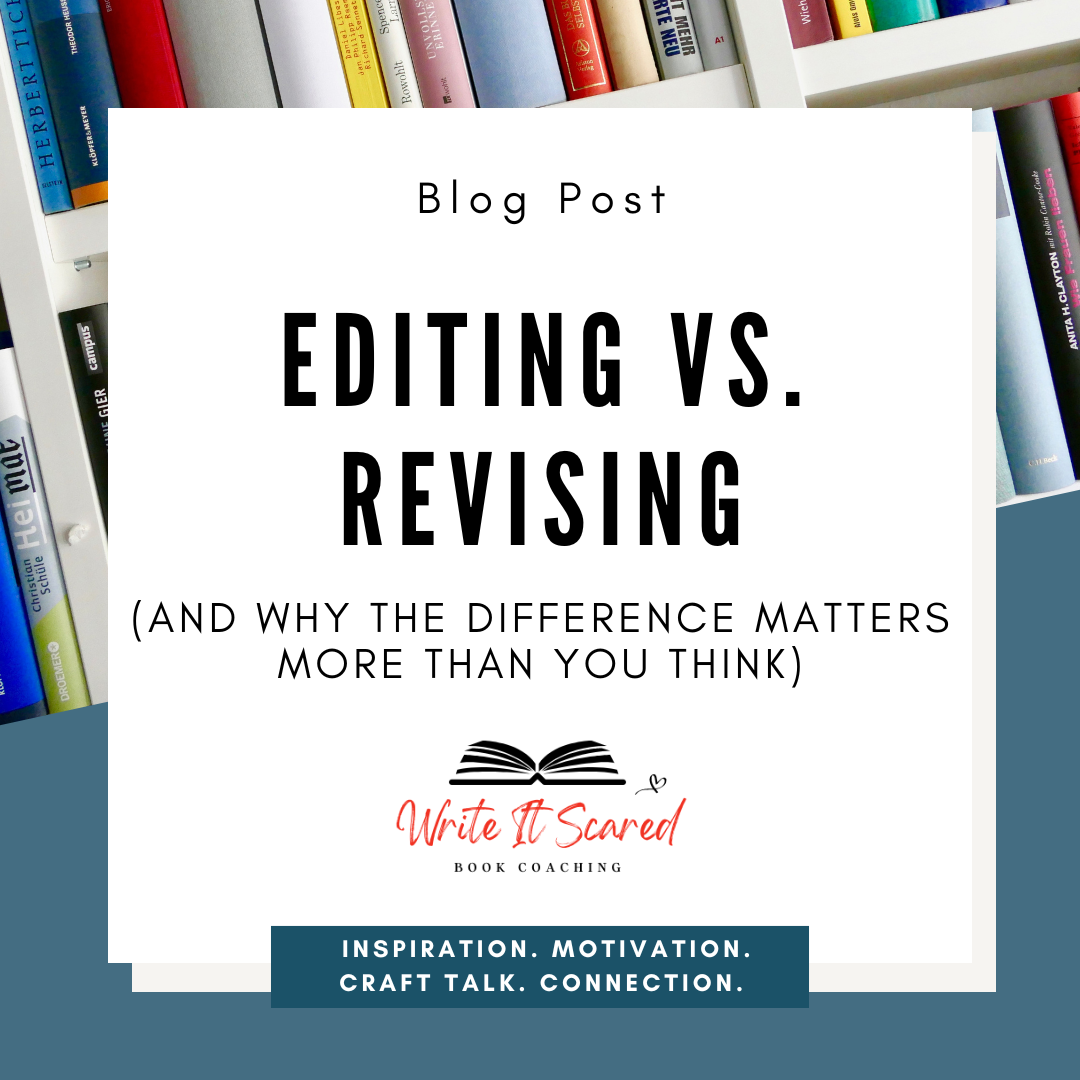
Editing vs. Revising (And Why the Difference Matters More Than You Think)
Do you edit your first draft or do you revise it? Is there a difference? Absolutely. And understanding it will save you countless hours and precious energy!
I’m breaking it all down for you this week!
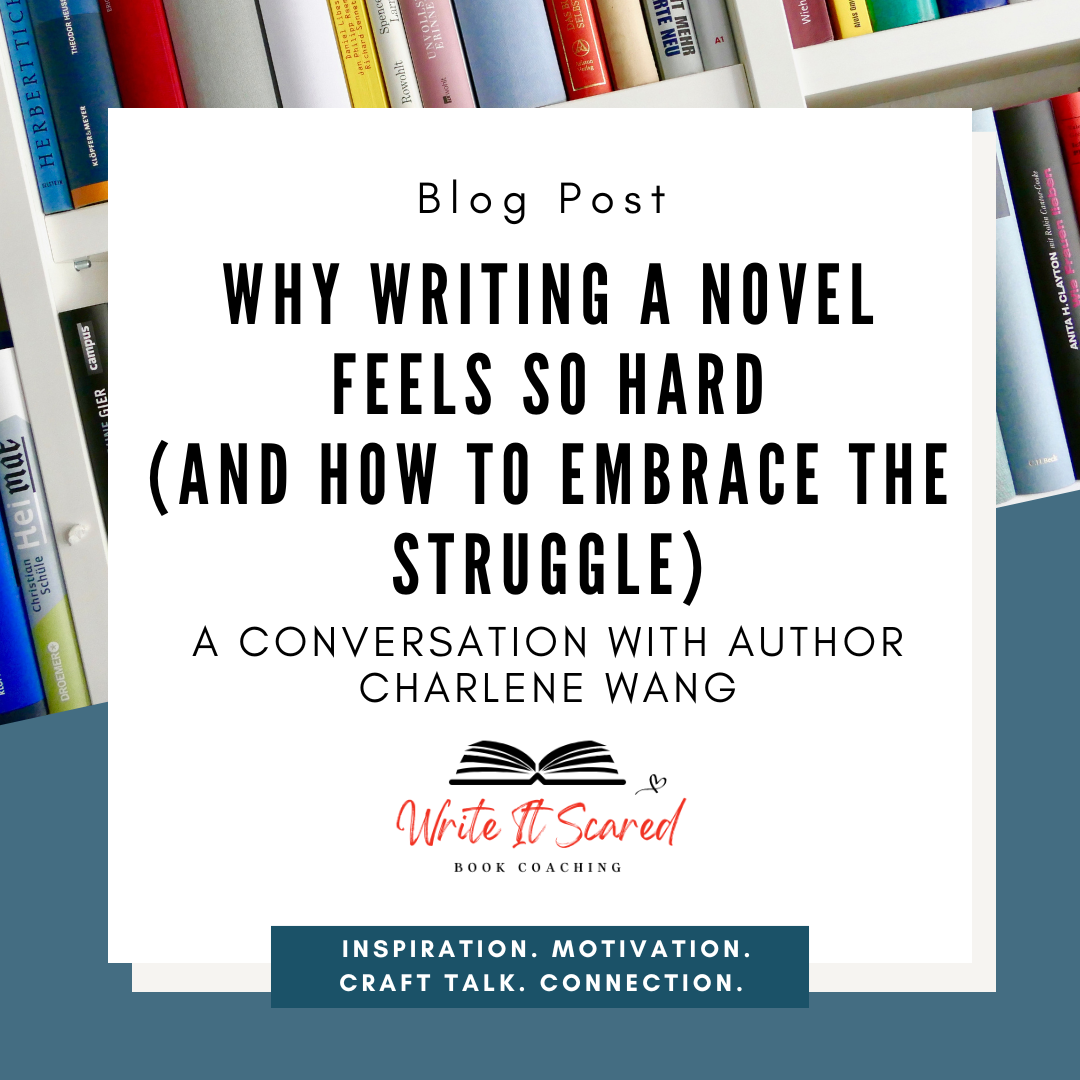
Why Writing a Novel Feels So Hard (and How to Embrace the Struggle): A Conversation with Author Charlene Wang
I’m sharing a conversation this week that stuck with me long after the mics were off. I spoke with debut author Charlene Wang, whose dark academia novel I’ll Follow You is a gripping exploration of toxic friendship, ambition, and the seductive power of social media.
What stood out most? Charlene’s honesty about how hard it was to write this book—and how normal that struggle actually is. We talked about everything from long ass revision timelines and perfectionism to how hard it can really be to embrace the title of writer. This one’s for all of us in the thick of a messy draft, wondering if it’s supposed to feel this hard.
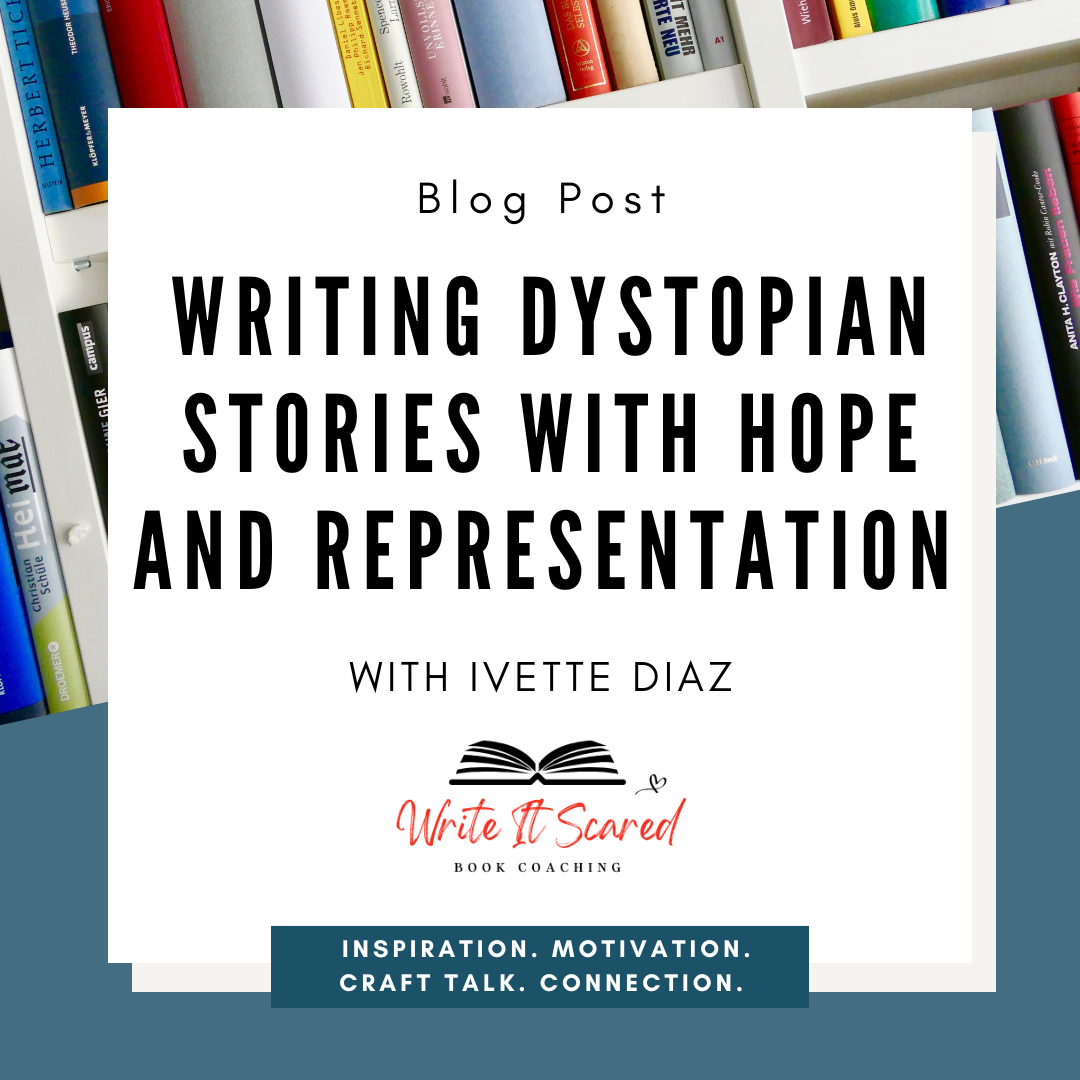
Writing Dystopian Stories with Hope and Representation with Ivette Diaz
Dystopian fiction often focuses on what’s broken in the world—but in my conversation with author Ivette Diaz, we talked about something way more important: hope.
Ivette writes young adult dystopian stories that center on representation, integrity, and resilience. Her work reminds readers—especially young readers—that even in difficult worlds, courage, compassion, and agency matter.
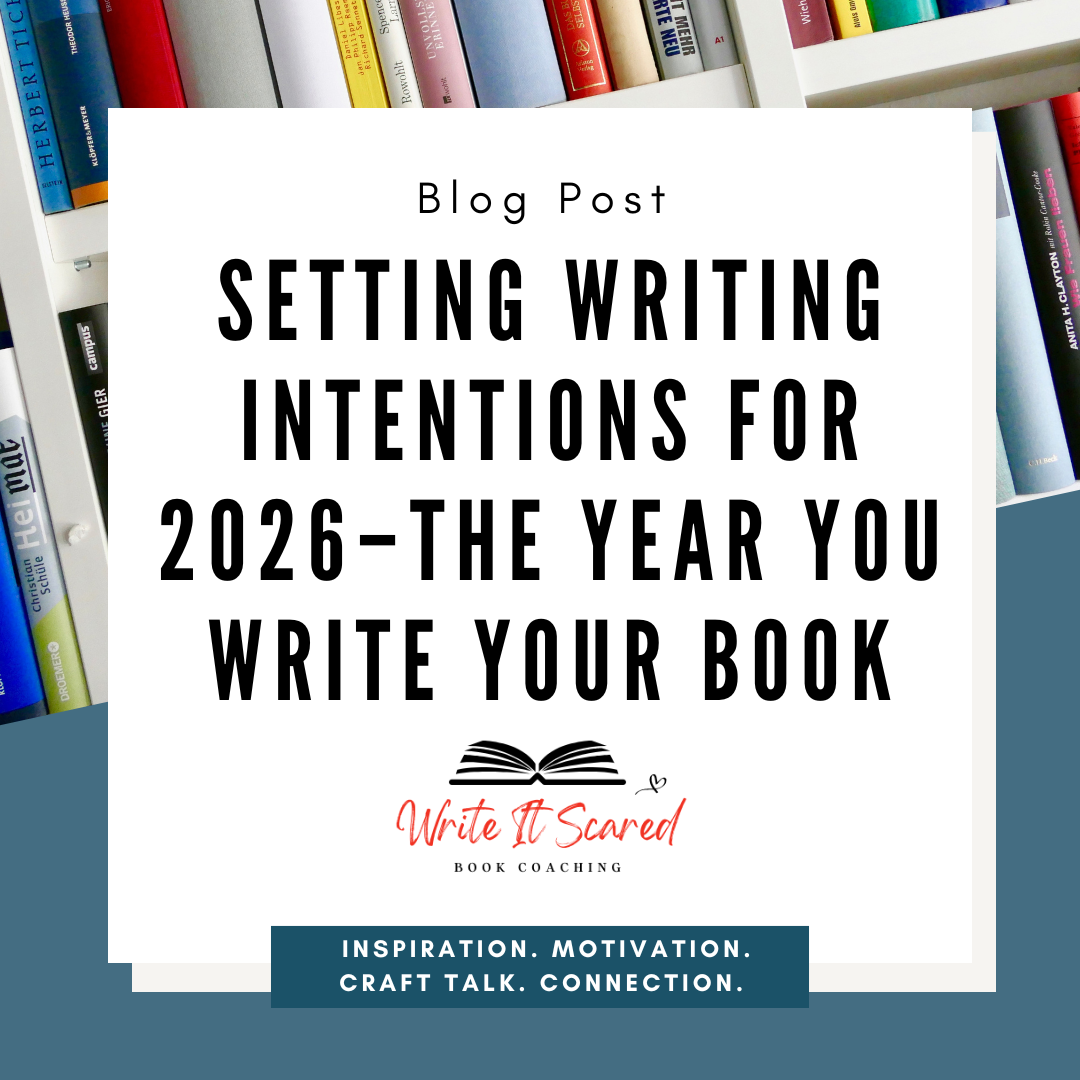
Setting Writing Intentions for 2026–The Year You Write Your Book
Learn how to set writing intentions for 2026 that help you write your book with consistency, grace, and realistic habits that work with real life.
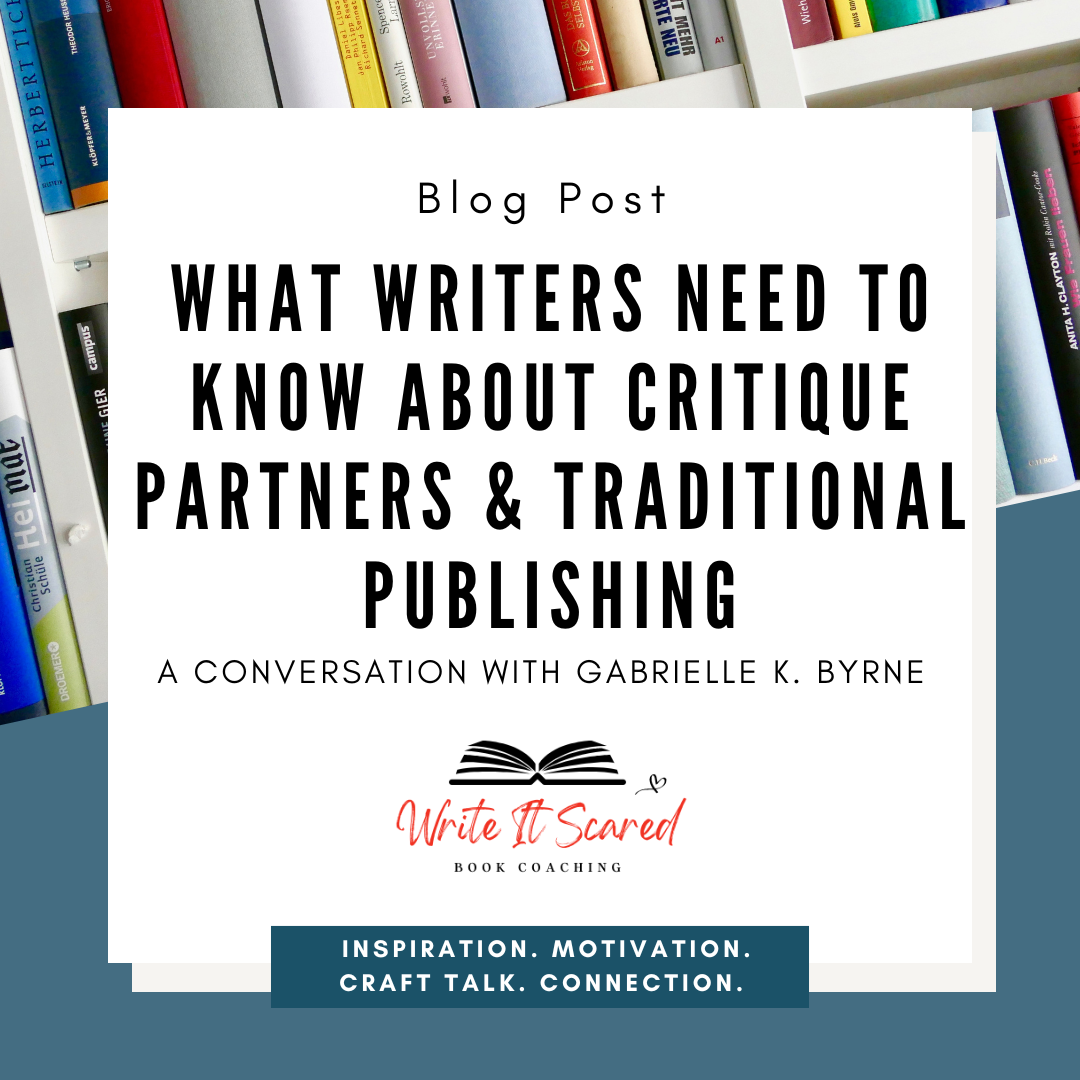
What Writers Need to Know About Critique Partners & Traditional Publishing: A Conversation with Gabrielle K. Byrne
Some conversations feel like a reset button. My chat with fantasy author and book coach Gabrielle K. Byrne was exactly that — a reminder that writing doesn’t have to be rushed, measured, or constantly proven. It can be something gentler, steadier, and more human. If you’ve been wrestling with feedback, comparing yourself to other writers, or wondering whether your process is “right,” this one’s for you.
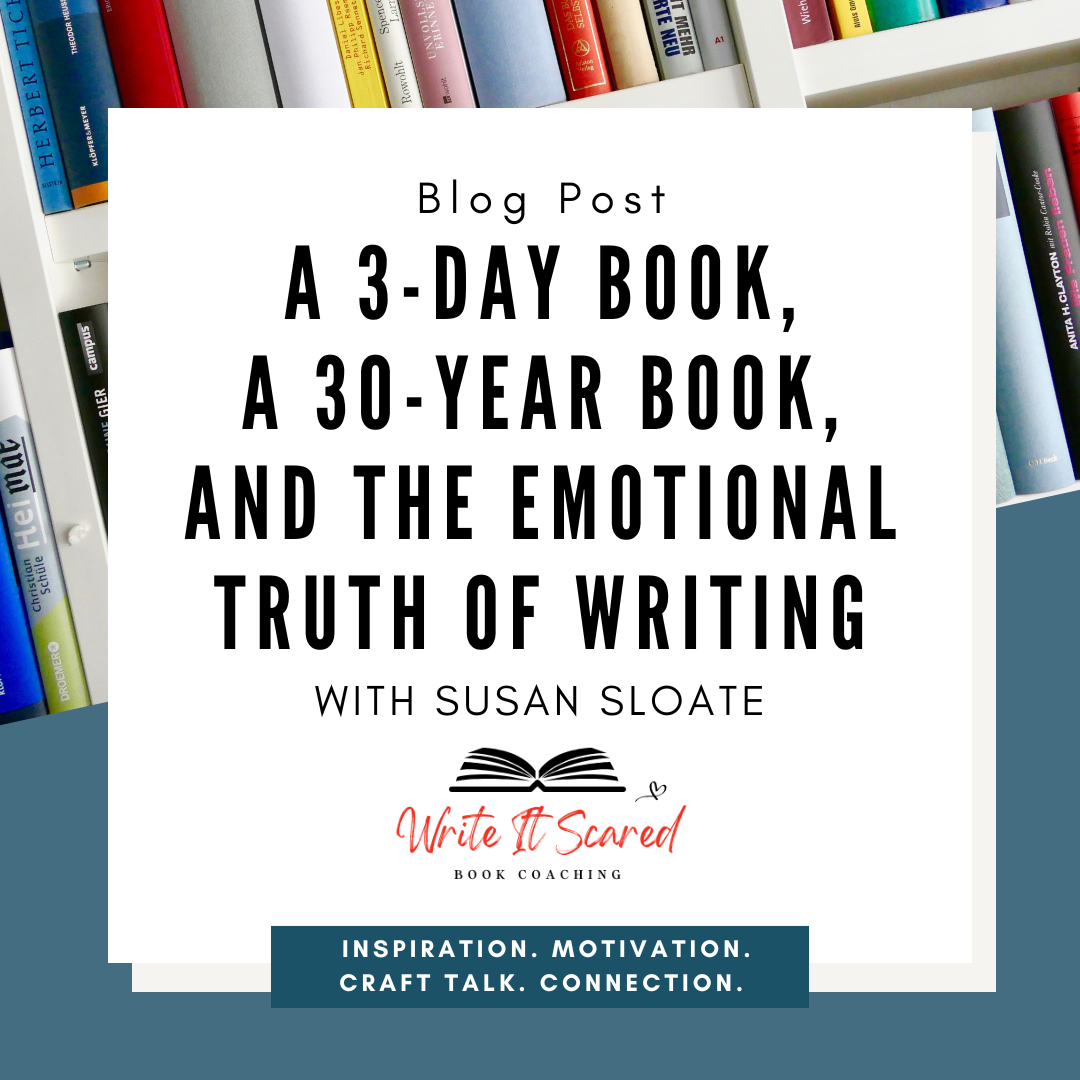
A 3-Day Book, a 30-Year Book, and the Emotional Truth of Writing with Susan Sloate
Author Susan Sloate shares lessons from writing books fast, slow, and everywhere in between—plus insights on doubt, deadlines, and emotional truth.

Embracing the Magic of Cozy Mysteries: A Conversation with Author Iris Applewood
Iris Applewood never set out to become a writer. In fact, like me, she once thought writers were mythical creatures—like unicorns or leprechauns. But something cracked open during a moment of self-reflection and suddenly, the pull toward storytelling became undeniable.
In this week’s conversation, Iris and I dive into her circuitous journey from research analyst to perfumery owner to published cozy mystery author.

Writing Romantic Comedies with Heart and Humor: A Conversation with Author Kate Archer
What do butlers, Regency settings, and hilarious romantic misunderstandings have in common? Kate Archer.
In this week’s episode of The Write It Scared podcast I sat down with Kate to talk about her journey as a Regency rom-com author, how she blends humor with character truth, and what it really takes to write stories that make readers swoon and laugh simultaneously.

How a Gratitude Practice Can Reset Your Writing Life
What would happen if you paused after every writing session—not to criticize what didn’t go well, but to appreciate what did? What if you made space to reflect on what writing gives you, not just what it demands? This week, I’m revisiting a practice that’s been pivotal in both my personal recovery and my writing life: Gratitude.
And yes, we’ve talked about this before. But some topics never run out of steam—and this one’s worth pulling out of the vault.

It’s Never Too Late to Write Your Book: How a 79-Year-Old Debut Novelist Jean Ende Proves Your Writing Dream Has No Expiration Date
Meet Jean Ende, a debut novelist who published her first book at 79. In this conversation, she shares how she mined family history for fiction, found her voice later in life, and proved that your writing dream has no expiration date.

How to Avoid the First Draft Rewriting Trap in Your Fiction Novel
You sit down to write, but five minutes later you’re still staring at the same sentence—rewriting, deleting, rewriting again. You tell yourself you’re “just tweaking.” But deep down, you know what’s really happening: You’re stuck in perfection mode. It’s a trap. You know it, but can’t seem to stop. This week I’m breaking down why this happens and how to avoid it.

From “Am I Good Enough?” to “I Believe in My Work” with Book Coach Karmen Špiljak
This week on the Write It Scared podcast, I sat down with Karmen Špiljak—an indie author, developmental editor, and book coach who helps emerging writers trust their voice and finish the stories that linger with readers.
And trust me, this episode and article are packed with gems—especially if you’ve ever wrestled with imposter syndrome, perfectionism, or the extra hurdles of writing in a language that’s not your own.

How Fantasy Author Michelle Miles Built a Thriving Indie Publishing Career
What does it really take to write and publish more than forty books—and still love the process? Fantasy author Michelle Miles has done just that, carving out a sustainable indie career through persistence, patience, and a fierce refusal to quit. Her story is a reminder that there’s no one right path to publication—just the one that keeps you writing.

How to Create Stakes in Your Fiction Novel That Hook Readers
Want to write a novel readers can’t put down? Learn how to raise the stakes in your story so readers care deeply about your characters and keep turning the page.

Tackling Big Issues with Humor: Lessons from Kid-Lit Author Ali Terese
This week on the Write It Scared podcast, I had the joy of talking with middle-grade and YA author Ali Terese, whose books prove that stories can be both laugh-out-loud funny and deeply empowering.
Her novels tackle big issues like period equity, bodily autonomy, and health equity for kids. And they do it through comedy, friendship, and activism.
Ali calls them stories about “messy girls changing the world,” and I—as a mom to a nine-year old who insists she’s already a tween—couldn’t love that description more.

From False Starts to Finished Novel: How Bruce Buchanan Wrote His Debut Fantasy
What does it take to finally finish a novel after years of false starts? For fantasy author Bruce Buchanan, the answer was persistence, community, and the decision to stop giving up.
Like many of us, Bruce spent years starting and stopping projects, second-guessing himself, and walking away when the doubts got loud.
In our recent conversation, Bruce shared how he broke through that cycle, what kept him moving forward, and the lessons he learned along the way.

How to Figure Out What the Hell Your Character Wants: Goals vs. Desires v. Needs
If you’ve ever struggled to untangle what your character wants versus what they need—or to sort out all the talk about “external goals” and “internal objects of desire,” well then you’re not alone. It really comes down to goals and desires. In this article, I’m digging into what makes goals and desires different, why both matter, and how to use them to braid plot and character transformation together!
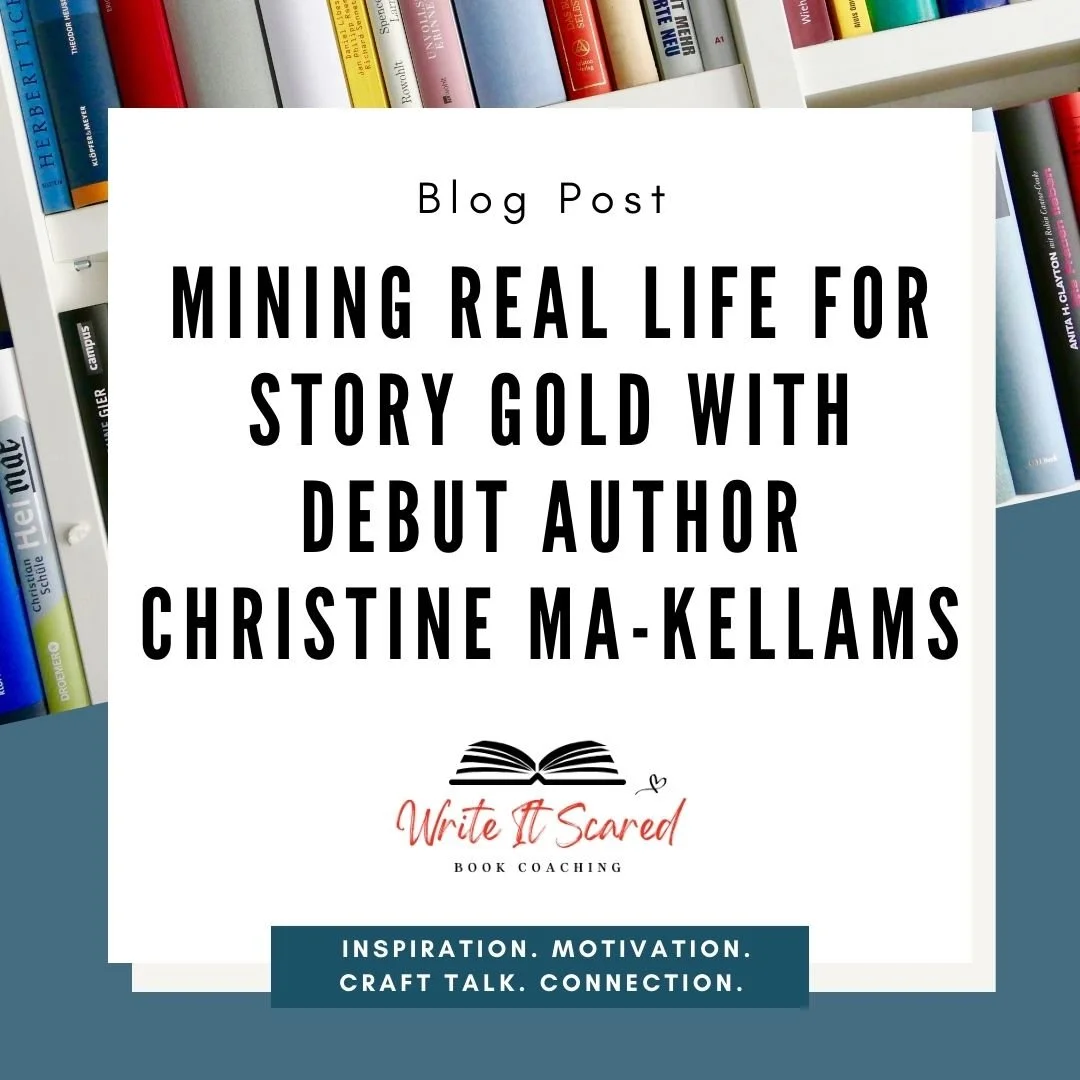
Mining Real Life for Story Gold With Debut Author Christine Ma-Kellams
This week on The Write It Scared Podcast, I had the pleasure of talking with debut author Christine Ma-Kellams—a Harvard-trained cultural psychologist, Pushcart-nominated writer, and now, published novelist with her book The Band.
We dug into a lot of juicy topics: perfectionism, social media, mental health, a fresh spin on what it means to “write what you know,” as well as how to keep going when the voice of doubt gets loud.
Christine's journey is an inspiration to all of us as she’s someone who has figured out how to trust herself in this chaotic writing journey.
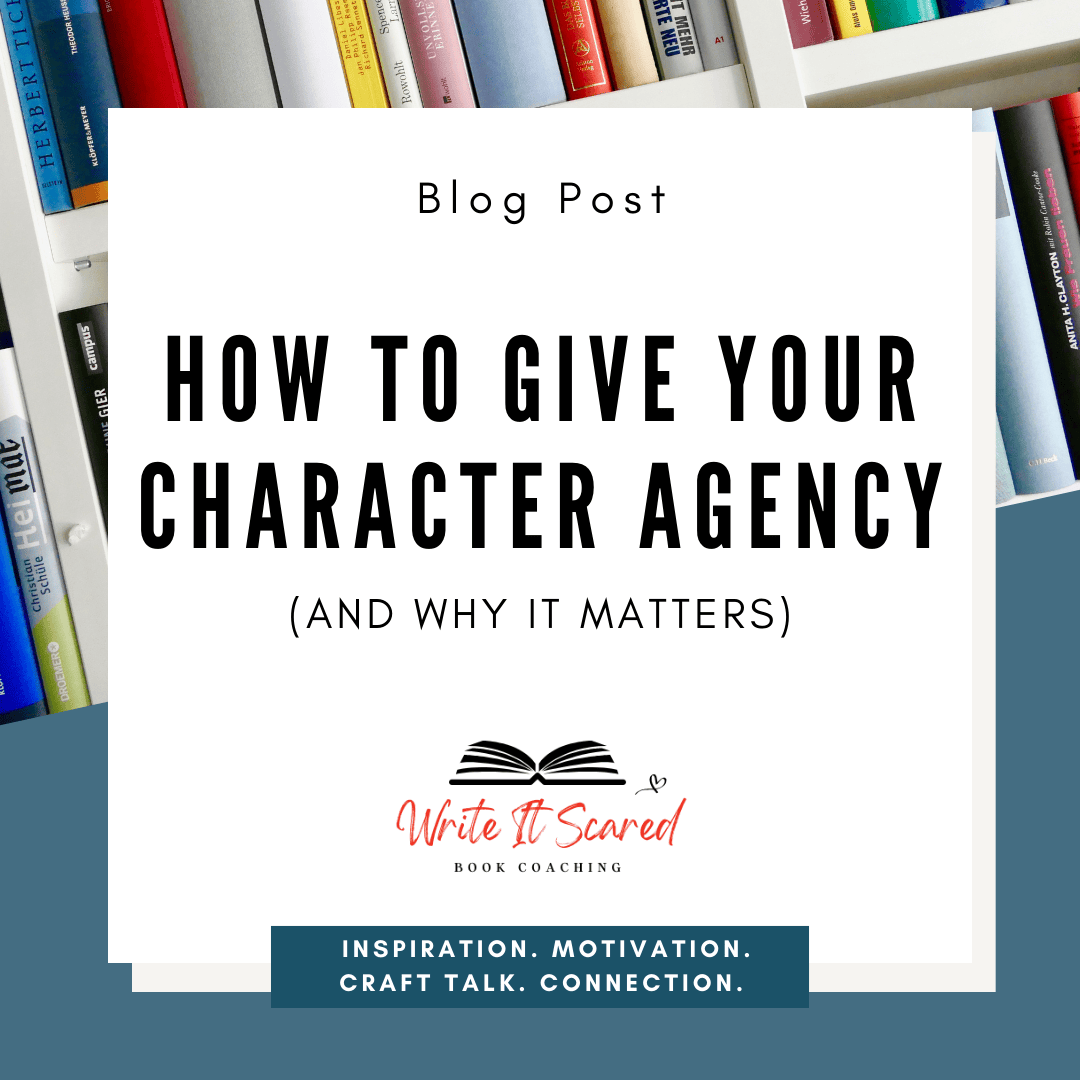
How to Give Your Character Agency and Why It Matters
Character agency is one of those things we’re told we need, but all too often I see writers struggle with what it actually means, how to create it, and how to get it on the page. So I’m breaking it down for you this week!
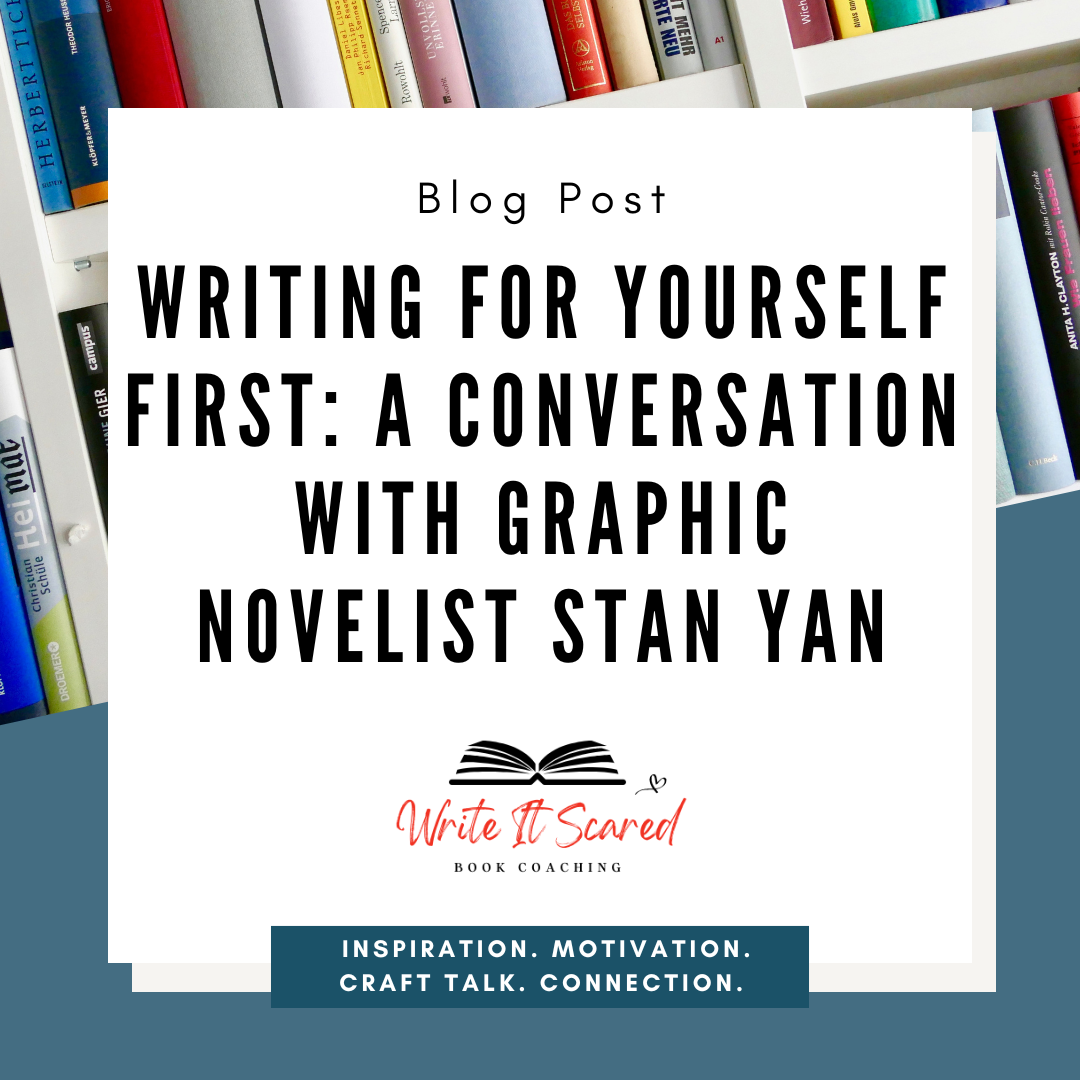
Writing For Yourself First: A Conversation with Graphic Novelist Stan Yan
The first guest episode of season three is up on the podcast and it was a blast! I chatted with graphic novelist Stan Yan about how to write (and draw) horror that holds humor, why representation matters, and how it took nearly a decade—along with a total reimagining of the story—for his debut middle grade graphic novel The Many Misfortunes of Eugenia Wang to come to life.
If you’re a writer, illustrator, or creative of any kind trying to figure out how to allow a vision to evolve and learn to trust it, this interview is a gold mine.
